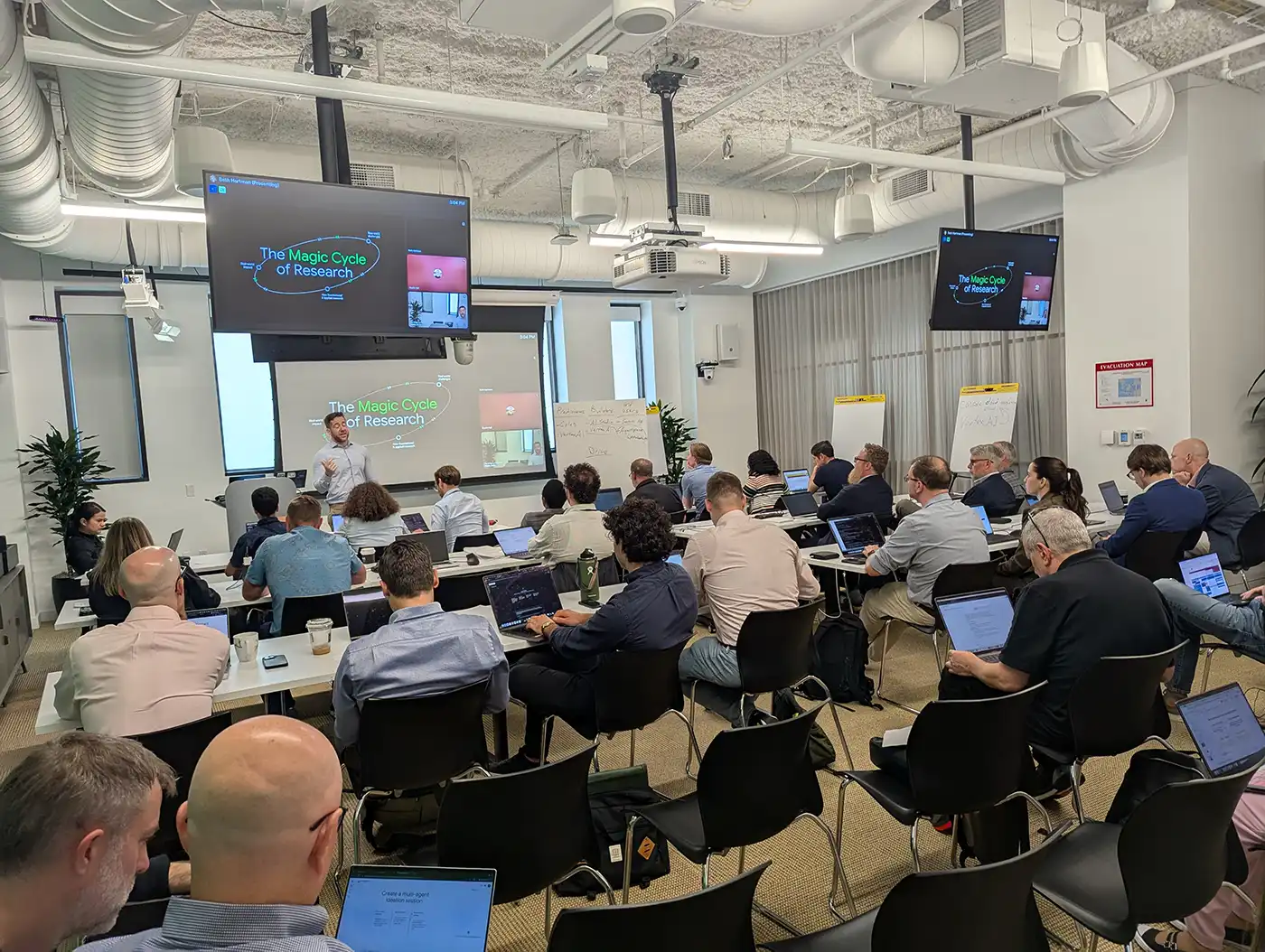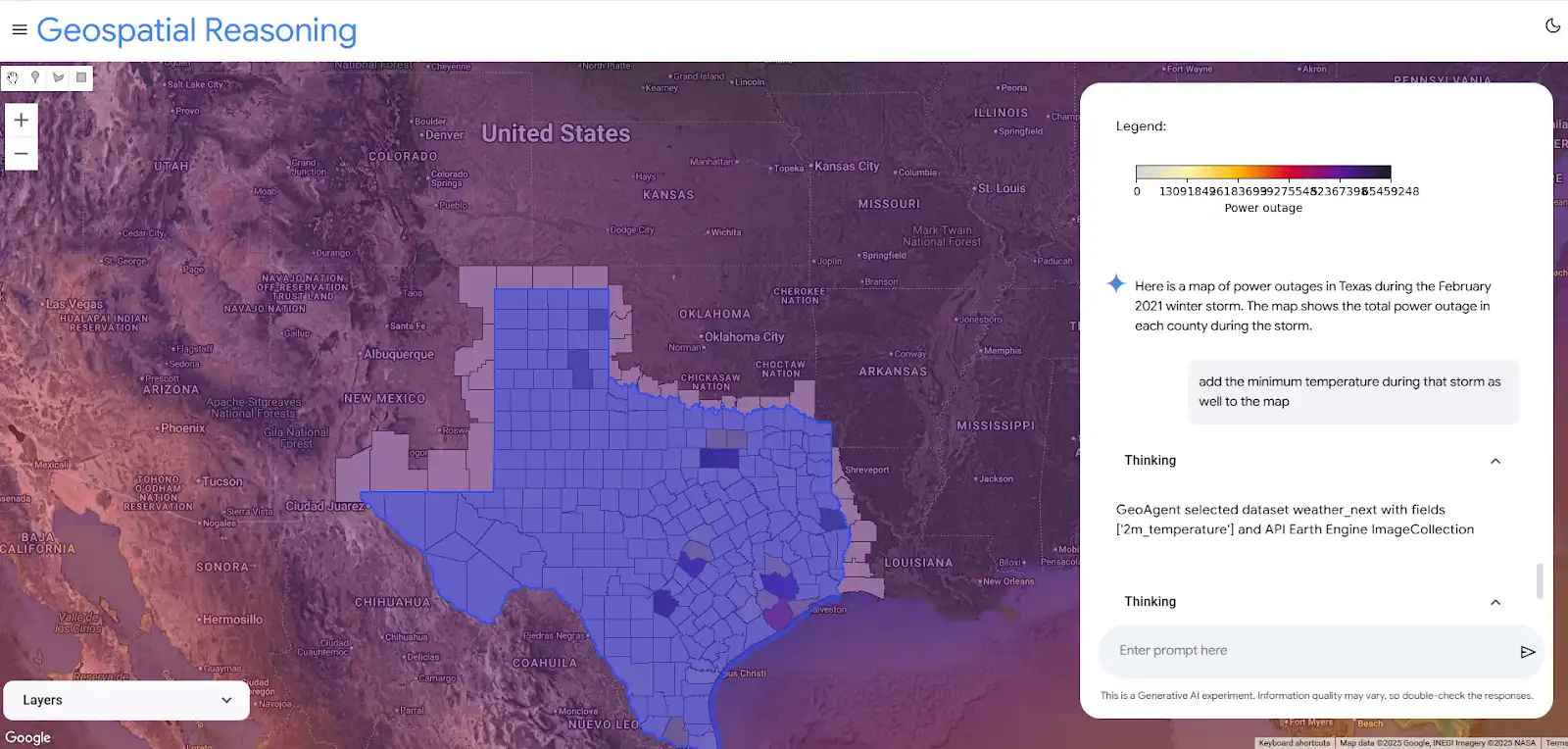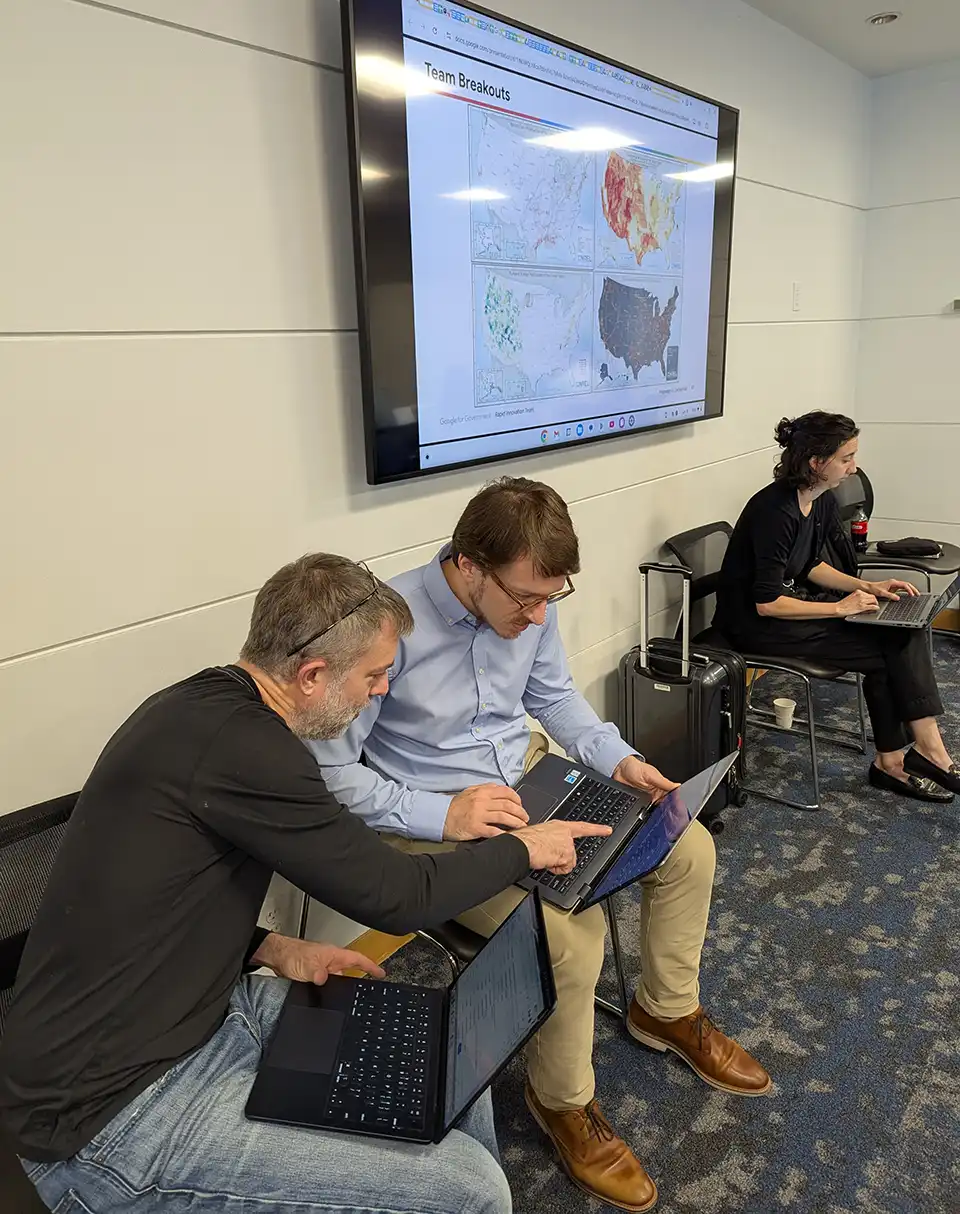NREL and Google Host Artificial Intelligence Hackathon To Tackle Data Center Energy Challenges
Experts Explore Potential of Google AI Tools To Mitigate Potential Energy Limits for Quick Growth of US Data Centers
NREL and Google teamed up to host a hackathon, bringing together leading researchers from nine U.S. Department of Energy (DOE) national laboratories to explore and leverage Google's generative artificial intelligence (AI) and large language model tools to address an array of critical challenges related to energy limitations for U.S. data centers.
Overcoming these challenges is critical to enable scaling for future technologies while ensuring energy reliability and affordability.
According to Google’s AI definition, fittingly, a hackathon is a collaborative event where people with diverse skills, often programmers and designers, come together to work intensively on a specific project, typically within a short time frame.
The original idea for the hackathon emerged out of discussions with Google’s public sector team and NREL’s computational science team.
“Both groups were interested in exposing scientists to some of the latest and greatest AI models to test out what they’re really capable of, but both groups also wanted a targeted application,” said Ray Grout, director of the computational science center at NREL. “Exploring data center energy challenges was a natural fit given the growing demand of energy for AI, and the interest in the topic for the labs and Google.”
Roughly 50 top minds, including six NREL computational and data scientists, participated in the two-day event, which took place June 17–18 in Washington, D.C. Participants engaged in hands-on experimentation, applying cutting-edge AI capabilities to real-world problems in geospatial analytics, energy systems, data center optimization, and digital-twin development. The hackathon provided a unique platform for participants to directly engage with Google's AI tools, particularly Gemini, and explore their applicability to a diverse range of scientific and engineering problems.

Google’s AI platform includes several tools that enable researchers to accelerate and expand their work overall. Among the tools are Agentspace and its included agents like Idea Generation and Deep Research. Idea Generation, an agent premade by Google, has the goal of helping with innovation and problem-solving for enterprise users by combining advanced AI with a unique tournament-style competition framework to generate and rank ideas. Deep Research enables researchers to gather, analyze, and understand internal and external information.
Other tools help improve operational efficiency, allowing researchers to inform their work by more quickly finding resources across labs and agencies. Finally, many tools address specific use cases like geospatial reasoning, population dynamics, and weather forecasting. For example, one demonstration that the Google geospatial team showed at the hackathon used geospatial reasoning and weather forecasting for predicting grid outages. Google teams represented at the hackathon included Google Public Sector, DeepMind, Google Research, and Climate Ops.

“Google was honored to partner with NREL and work with so many DOE labs at this collaborative event,” said Regiuel Days, account executive for federal science and research at Google. “These critical research institutions provide our country with essential insights into key issues such as grid resilience, energy security, and data center optimization. Combined with Google’s data and cutting-edge AI models, we can work together to more quickly find solutions to the big challenges we face.”
Hackathon Experience and Outcomes
The hackathon successfully demonstrated the potential of generative AI in accelerating research, automating complex tasks, and generating novel insights.
During the two-day event, experts teamed up to collaborate and explore the various identified challenges. Some participants focused on geospatial analytics, leveraging Gemini to process and interpret spatial data. Other researchers utilized Gemini's code-generation and debugging capabilities, while others found Gemini valuable for in-depth research and brainstorming.

NREL’s Gabriel Konar-Steenberg was one of several researchers to explore specialized problems. Konar-Steenberg explored the Population Dynamics Foundation model to predict power grid behavior, feeding it county-level data to see if it could predict interconnections in other counties. Other laboratories with staff in person at the event included Argonne National Laboratory, Idaho National Laboratory, Jefferson Laboratory, Lawrence Berkeley National Laboratory, National Energy Technology Laboratory, Oakridge National Laboratory, Pacific Northwest National Laboratory, and Sandia National Laboratories.
The labs explored solutions such as using Vertex AI and Google Earth Engine to better understand data-center load balancing, real-time water data, and cybersecurity. Through these topic explorations, Google gained insights into how national laboratories envision using their AI tools, especially concerning specialized applications like geospatial reasoning, digital twins, and autonomous engineering.
The hackathon served as a valuable collaborative step, fostering innovation and providing crucial insights into the evolving landscape of generative AI for scientific research. The event generated robust discussion, shared learning, and discoveries and identified opportunities for future follow-on events.
“We have so many experts across the national labs working on energy challenges, and Google has so many experts developing and deploying AI solutions. This was a great way to get everyone in the same room to figure out what we can do already and where there is more work to be done,” Grout said.
“Throughout this interactive, guided exploration of Google’s AI models and tools, we learned a tremendous amount about what types of challenges the labs are focused on solving,” said Beth Hartman, Google’s industry executive for federal science and research. “This helps us to better understand how we can help more specifically. Going forward, we are focused on providing the labs with increased access to the models that best support their work. We are also planning to host more hackathons in partnership with the labs and will continue to invite all 17 DOE labs to participate. Stay tuned!”
Learn more about NREL’s computational science and AI research.
Last Updated Jan. 22, 2026
